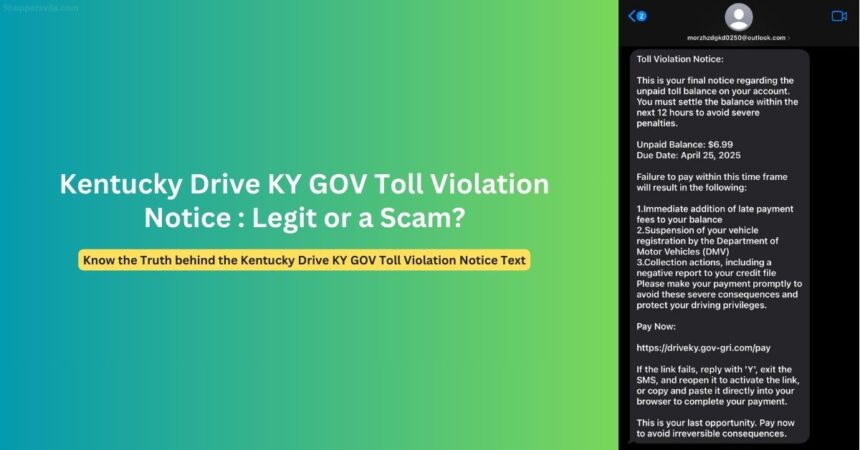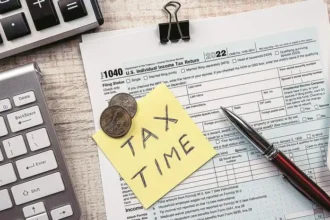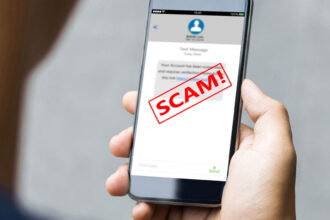Kentucky residents are increasingly being targeted by sophisticated text message scams claiming to be from the Kentucky Transportation Cabinet (KYTC) or RiverLink toll service. The “Drive KY GOV” toll violation scam has swept across the state, with fraudulent messages demanding payment for supposed “unpaid tolls” and threatening severe consequences if recipients don’t comply immediately. This Kentucky scam has become so widespread that local authorities are warning citizens to remain vigilant against these deceptive toll violation notices.
Official Warnings about the Drive KY GOV Scam
The Kentucky Transportation Cabinet has issued formal warnings about these fraudulent messages. KYTC officials have emphasized that they do not initiate contact with drivers about toll violations via text message. Law enforcement agencies across Kentucky, including Oldham County Police, have confirmed these toll violation notices are scams and advised residents to ignore them. The Drive KY GOV scam has been identified as part of a broader pattern of Kentucky scams targeting residents through text messages.
These official warnings align with a nationwide trend of similar scams targeting residents in multiple states. Transportation authorities in Michigan, Ohio, Florida, and other states have issued similar alerts about toll-related text scams in recent months, indicating this is part of a coordinated nationwide phishing campaign.
Overview of the Kentucky Toll Violation Scam
The Kentucky toll violation scam is a sophisticated phishing attempt designed to steal personal and financial information from unsuspecting victims. Scammers send text messages claiming to be from Kentucky transportation authorities about unpaid toll violations, often using the official-looking “Drive KY GOV” branding to appear legitimate. These Kentucky scam messages create a sense of urgency and fear to manipulate recipients into clicking malicious links and providing sensitive information.
What makes these scams particularly concerning is their increasing sophistication. Recent versions include fake websites that mimic official government pages but with slightly altered URLs. For example, instead of the legitimate “ky.gov” domain, scammers use variations like “driveky.gov-gri.com” that appear official at first glance.
The scam exploits the existence of legitimate toll systems in Kentucky, particularly the RiverLink tolls on bridges connecting Louisville, Kentucky to southern Indiana. However, genuine toll violations from RiverLink are communicated through official mail, never via text messages demanding immediate payment.
How the Kentucky (KYTC) Toll Text Scam Works
The Kentucky toll scam follows a calculated pattern designed to create urgency and fear while harvesting sensitive information:
- Initial Contact: Victims receive an unsolicited text message or email claiming to be from KYTC, RiverLink, or a generic “Toll Violation” authority.
- False Urgency: The message creates immediate stress by using phrases like “final notice” and threatening severe penalties, including vehicle registration suspension, DMV reports, or negative impacts on credit scores.
- Specific Amount: To appear legitimate, the scam typically cites a relatively small, specific amount (like $6.99) that seems plausible enough not to raise immediate suspicion.
- Deceptive Links: The text includes a link that appears official at first glance but actually directs to a fraudulent website designed to steal personal and financial information.
- Technical Instructions: Many versions ask recipients to reply “Y” or perform specific actions like exiting and reopening their messaging app to “activate” the link, which serves to confirm that the phone number belongs to an active user.
- Data Theft: If a victim clicks the link and enters their information, scammers capture sensitive data including credit card details, security codes, and personal information that can be used for identity theft.
According to cybersecurity experts, these scams aren’t just about stealing one-time payments. Recent investigations by security researchers revealed that information collected through these phishing schemes is being used to add victims’ credit cards to mobile wallets on stolen phones, enabling more extensive fraud and unauthorized transactions.
Text Message Patterns and Variations
The fraudulent toll texts follow recognizable patterns but often vary in specific wording. A typical message might read:
Toll Violation Notice: This is your final notice regarding the unpaid toll balance on your account. You must settle the balance within the next 12 hours to avoid severe penalties. Unpaid Balance: $6.99. Due Date: [Near Future Date]. Failure to pay within this time frame will result in the following: 1. Immediate addition of late payment fees to your balance 2. Suspension of your vehicle registration by the Department of Motor Vehicles (DMV) 3. Collection actions, including a negative report to your credit file.
These messages frequently contain several telltale characteristics:
- References to “Toll Violations” or “Final Notices”
- Urgent deadlines (typically within 12-24 hours)
- Threats of severe consequences, including DMV action
- Instructions to reply with “Y” or to click on suspicious links
- Requests to exit and reopen messages to “activate” links
- Claims about “protecting your driving privileges”
The scammers use various domains for their fraudulent websites, often employing tricks to make URLs appear legitimate. Common patterns include:
- Domains that include “ky.gov” or “driveky” but with additions (e.g., driveky.gov-gri.com)
- Email addresses with random characters (e.g., [email protected])
- Use of generic toll-related terms rather than specific Kentucky services
- URLs with non-standard extensions or additional characters after “.gov”
Red Flags: How to Spot a Fake Kentucky Toll Violation Text
Several immediate red flags can help Kentucky residents identify these scams:
1. Communication Method
Legitimate toll violations in Kentucky are communicated through official mail, not text messages or emails. RiverLink, the official toll operator for bridges connecting Kentucky and Indiana, sends physical invoices by mail with detailed information about the toll violation.
2. Suspicious Links and Domains
Official Kentucky government websites use “.ky.gov” as their domain. Any variation such as “driveky.gov-gri.com” or similar modified domains are fraudulent. Additionally, legitimate government websites don’t typically use hyphens or additional extensions in their primary domain names.
3. Urgent Deadlines and Threats
Legitimate toll notices provide reasonable timeframes for payment and don’t threaten immediate severe consequences. The scam messages often give extremely short deadlines (such as 12 hours) and threaten disproportionate penalties for relatively small amounts.
4. Requests for Unusual Actions
Instructions to reply “Y” or to perform unusual actions like exiting and reopening message apps are clear signs of a scam. Legitimate government communications don’t require such steps to access official websites.
5. Sender Information
The scam messages often come from obviously suspicious email addresses, international phone numbers, or unusual phone formats. Legitimate government communications come from official, consistent channels.
6. Errors and Inconsistencies
Many scam messages contain grammatical errors, unusual formatting, or inconsistencies in terminology. For example, referring to both “KYTC” and “DMV” in the same message is suspicious since Kentucky uses “Transportation Cabinet” rather than “DMV.”
Protecting Yourself: What to Do if You Receive a Suspicious Text
If you receive a text message claiming to be from Kentucky transportation authorities about unpaid tolls, follow these guidelines to protect yourself:
Don’t Engage with the Message
- Never click on links in suspicious text messages
- Don’t reply to the message, even to say “STOP” or “NO”
- Don’t call numbers provided in the message
Responding in any way confirms your number is active, potentially leading to more scam attempts.
Report the Scam
- Forward suspicious texts to SPAM (7726)
- Report to the Federal Trade Commission at ReportFraud.ftc.gov
- File a complaint with the FBI’s Internet Crime Complaint Center at www.ic3.gov
- If concerned about legitimate tolls, contact RiverLink directly at 855-748-5465 or visit their official website at www.riverlink.com
Check Your Accounts
If you’ve already clicked on links or provided information:
- Monitor your financial accounts for unauthorized charges
- Contact your bank or credit card company immediately
- Consider placing a fraud alert on your credit report
- Change passwords for any accounts that may have been compromised
Use Built-in Security Features
- Enable spam-blocking tools on your mobile device
- Consider using call-blocking apps designed to filter scam texts and calls
- Keep your phone’s operating system updated with the latest security patches
Frequently Asked Questions About Kentucky Toll Violation Scams
1. Is the Drive KY GOV Toll Violation Notice Text Legitimate?
No. Official toll notices in Kentucky are sent through postal mail, not text messages. RiverLink, the operator of toll bridges in Kentucky, does not initiate toll violation notices via text message. The Drive KY GOV scam is a known Kentucky scam, and any text claiming to be from Kentucky transportation authorities regarding unpaid tolls is fraudulent.
2. How Do I Check if I Really Have Unpaid Tolls in Kentucky?
To verify if you have legitimate unpaid tolls in Kentucky:
- Visit the official RiverLink website (www.riverlink.com)
- Call RiverLink’s customer service at 855-748-5465
- Check your postal mail for official notices
- Log into your RiverLink account if you have one established
Never attempt to verify toll status by clicking links in unsolicited text messages.
3. What Should I Do If I’ve Already Paid a Fake Toll Notice?
If you’ve already provided payment information to a scam:
- Contact your bank or credit card company immediately to report fraud
- Cancel any compromised cards and request new ones
- Monitor your accounts closely for additional unauthorized charges
- File a police report and report the fraud to the FTC and FBI’s Internet Crime Complaint Center
- Consider placing a freeze on your credit reports with the major credit bureaus
4. Can I Get in Trouble for Ignoring These Text Messages?
No. Ignoring fraudulent text messages claiming to be about toll violations will not result in any penalties or legal consequences. Legitimate toll violations are communicated through official channels, including postal mail, and follow legal due process, which involves multiple notifications before any action is taken.
5. How Do Legitimate Toll Payments Work in Kentucky?
In Kentucky, toll collection primarily operates through:
- Electronic transponders (RiverLink E-ZPass)
- License plate recognition for registered RiverLink accounts
- Pay-by-mail invoices sent to the registered address of the vehicle
Legitimate toll invoices include specific information about when and where the toll was incurred, often with photographic evidence of the vehicle crossing the toll bridge. Payment options include online payment through the official RiverLink website, mail-in payment, or payment by phone through official channels.
Conclusion: Staying Vigilant Against Evolving Kentucky Scams
The Drive KY GOV toll violation scam represents a concerning trend in how scammers are adapting their techniques to appear more legitimate. This Kentucky scam is particularly deceptive as electronic tolling becomes more common across the country, with scammers exploiting public familiarity with these systems to create convincing phishing attempts.
Kentucky officials emphasize that government agencies will never request personal information or demand money through unsolicited emails or text messages. Legitimate government communications provide official channels for verification and reasonable timeframes for response.
As these scams evolve, the best protection remains awareness and skepticism. Before responding to any unexpected message about tolls or other government fees, verify through official channels by contacting the agency directly using contact information from their official website.
By staying informed and cautious, Kentucky residents can protect themselves from becoming victims of these increasingly common toll scams. Remember that taking a moment to verify before responding can save significant financial and personal hardship in the long run. If you’re unsure about a communication regarding tolls, contact RiverLink or the Kentucky Transportation Cabinet directly through their official contact channels rather than responding to the message itself.









































